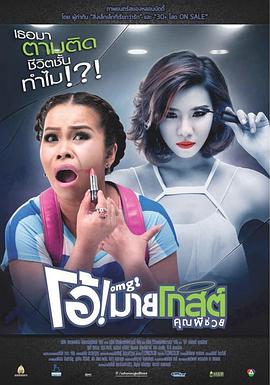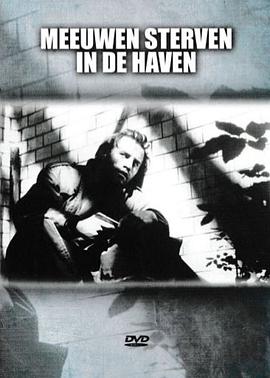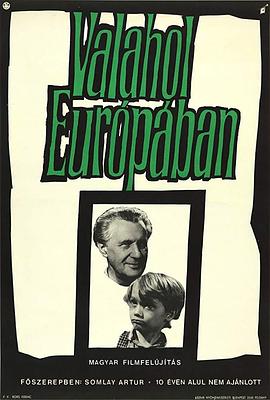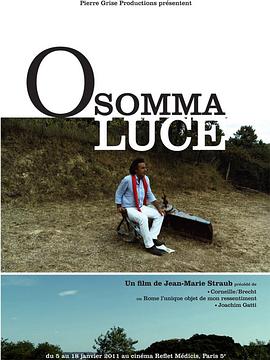影片库
影片库为你选出 4 部影片
2013
恐怖片
泰国
凯蒂(苏达拉·布查蓬 Sudarat Butrprom 饰)性格天真开朗,单纯善良,但年近三十,却依旧形单影只,似乎与爱情无缘。凯蒂的心中有一个梦想,那就是上电视,为了完成这个梦想,凯蒂参加了达人秀,希望在节目中获胜,走上人生巅峰。 然而,让凯蒂怎么也想不到的是,一只半路杀出的鬼魂扰乱了自己全部的人生轨迹。鬼魂名叫阿碧(克丽丝·霍旺 Cris Horwang 饰),生前是一名人气超高的模特,她拥有着天使的面庞和魔鬼的身材,无奈英年早逝,肉身早早化为尘土,只剩灵魂飘摇在人世之中。阿碧缠上了凯蒂,拿她当仆人一般使唤,身份和个性都迥然不同的一人一鬼之间闹出了许多的笑料,却也产生了真挚的友谊。
HD中字
1955
剧情片
其它
本片被认为是第一部弗拉芒电影,也被认为是第一部比利时电影,曾获得第九届戛纳电影节金棕榈奖提名。故事主角是一个无人知道姓名、也无人知道来历的流浪青年,他总是于深夜时分在街上徘徊,他一直渴望坐船离开,但却因为没有相关证件而无法成行。偶然之间,他认识了一个小女孩,小女孩是战争孤儿,如今在养父母家中过得很不快乐,同样孤独的两个人很快成为了朋友,然而一个心怀不轨的恶徒已经悄悄盯上了小女孩。来源:微博@优杉stardust
HD中字
1948
剧情片
其它
Somewhere in the remote region, the war ends. In the midst of ruined cities and houses in the streets, in rural hamlets, everywhere where people still live, are children who have lost their homes and parents. Abandoned, hungry, and in rags, defenseless and humiliated, they wander through the world. Hunger drives them. Little streams of orphans merge into a river which rushes forward and submerges everything in its path. The children do not know any feeling; they know only the world of their enemies. They fight, steal, struggle for a mouthful of food, and violence is merely a means to get it. A gang led by Cahoun finds a refuge in an abandoned castle and encounters an old composer who has voluntarily retired into solitude from a world of hatred, treason, and crime. How can they find a common ground, how can they become mutual friends The castle becomes their hiding place but possibly it will also be their first home which they may organize and must defend. But even for this, the price will be very high. To this simple story, the journalist, writer, poet, scriptwriter, movie director, and film theoretician Béla Balázs applied many years of experience. He and the director Géza Radványi created a work which opened a new postwar chapter in Hungarian film. Surprisingly, this film has not lost any of its impact over the years, especially on a profound philosophical level. That is to say, it is not merely a movie about war; it is not important in what location and in what period of time it takes place. It is a story outside of time about the joyless fate of children who pay dearly for the cruel war games of adults. At the time it was premiered, the movie was enthusiastically received by the critics. The main roles were taken by streetwise boys of a children's group who created their roles improvisationally in close contact with a few professional actors, and in the children's acting their own fresh experience of war's turmoil appears to be reflected. At the same time, their performance fits admirably into the mosaic of a very complex movie language. Balázs's influence revealed itself, above all, in the introductory sequences an air raid on an amusement park, seen in a montage of dramatic situations evoking the last spasms of war, where, undoubtedly, we discern the influence of classical Soviet cinematography. Shooting, the boy's escape, the locomotive's wheels, the shadows of soldiers with submachine guns, the sound of a whistle—the images are linked together in abrupt sequences in which varying shots and expressive sharp sounds are emphasized. A perfectly planned screenplay avoided all elements of sentimentality, time-worn stereotypes of wronged children, romanticism and cheap simplification. The authors succeeded in bridging the perilous dramatic abyss of the metamorphosis of a children's community. Their telling of the story (the scene of pillaging, the assault on the castle, etc) independently introduced some neorealist elements which, at that time, were being propagated in Italy by De Sica, Rossellini, and other film artists. The rebukes of contemporary critics, who called attention to formalism for its own sake have been forgotten. The masterly art of cameraman Barnabás Hegyi gives vitality to the poetic images. His angle shots of the children, his composition of scenes in the castle interior, are a living document of the times, and underline the atmosphere and the characters of the protagonists. The success of the picture was also enhanced by the musical art of composer Dénes Buday who, in tense situations, inserted the theme of the Marseilaise into the movie's structure, as a motive of community unification, as an expression of friendship and the possibility of understanding. Valahol Europaban is the first significant postwar Hungarian film. It originated in a relaxed atmosphere, replete with joy and euphoria, and it includes these elements in order to demonstrate the strength of humanism, tolerance, and friendship. It represents a general condemnation of war anywhere in the world, in any form.
HD中字
2010
剧情片
法国
The lines start with “O Somma Luce” which is the title of the film and also the 67th line of the 33rd canto in “Paradiso” of Dante’s “Divine Comedy” to the end of “Paradiso”. The film is completed with music and lines instead of emotions and narrations. This is a recent attempt to combine film with literature. The film begins with a black screen and the music of Edgard Varese. The BGM is “Deserts” that was recorded in 1954. After some moments of darkness, the music ends and a middle-aged man sits on a hill, reciting something. He is Giorgio Passerone, an Italian literature professor, and he is reading out of the last part of ‘Paradiso’ of Dante’s Divine Comedy. Jean-Marie Straub expressed how he thinks of Dante through a subtle accent and dialect. The director who had encoded many great artists and musicians including Bach, complete the combination of Dante and Varese, which could seem strange. (Lim Kyung Yong)
HD中字





